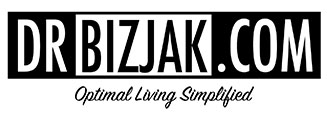As humans, we can’t possibly know everything. And as humans, we make mistakes. But as humans, it is very difficult for us to admit both of those things.
Doctors are notorious for blowing both of these… they tend to act like they know everything… and they aren’t very good at admitting that they made a mistake. Somehow, they feel that will make them appear less than superhero-like… it may make them seem… well… human. And God-forbid you find out they are mere mortals.
I realized a long time ago that it is okay to say the words “I don’t know.” Patients don’t expect me to know everything about everything. And it would be unfair, unrealistic, and dangerous to act as if I do. The key is to follow up those words with these words… “but I will find out.” And if I make a mistake, I’ve committed to say those dreaded words… “I was wrong.” And the key here is to follow that up with two of the most powerful words a human can say… “I’m sorry!” And, of course, correcting whatever it was that I did wrong.
These two sets of words… I don’t know, and I was wrong, are very powerful. And I used the doctoring scenario as an example, but they apply to any, and every, relationship known. They can bolster trust, love, leadership qualities, and connection when spoken from a manager, supervisor, teacher, spouse or significant other, and even a parent. Oh, and of course, in rarest of times, even politicians.
The handling of this pandemic has been loaded with opportunities to use these phrases, but I’m done holding my breath. In the beginning, we had very limited data. It made sense to error on the side of caution. I was very surprised, though, to hear the ones leading the charge speak with such certainty. I knew at that time that nobody could know for sure some of the things that were being said. But instead of saying here is what we think…, or based on what we know right now…, so-called experts were speaking as if what they were saying was fact. And guess what? When we found out that they were wrong, that those were not facts, two things happened.
First, we lost faith and confidence in those people. We found, and still find, it hard to believe what we are being told. Not because we are paranoid, frictional, or anti-whatever, but because a lot of what we were being told turned out to be incorrect.
Second, it became obvious that nobody was ever going to say that they were wrong. Instead of apologizing, letting us know they were doing their best with the information they had, they doubled-down on those mistakes. And those mistakes have resulted in this pandemic escalating to what it has.
I only use the pandemic as an example because it is so timely. My point is to encourage you to say “I don’t know” when you don’t know, and to say “I was wrong” when you are wrong. You are human… and humans don’t always know (in fact, often don’t)… and humans are sometimes wrong (in fact, often are).
Admitting you don’t know or are wrong will help build the relationships that you are striving to strengthen and grow. At the bare minimum, it will build trust. And in some cases, it may even save lives.







